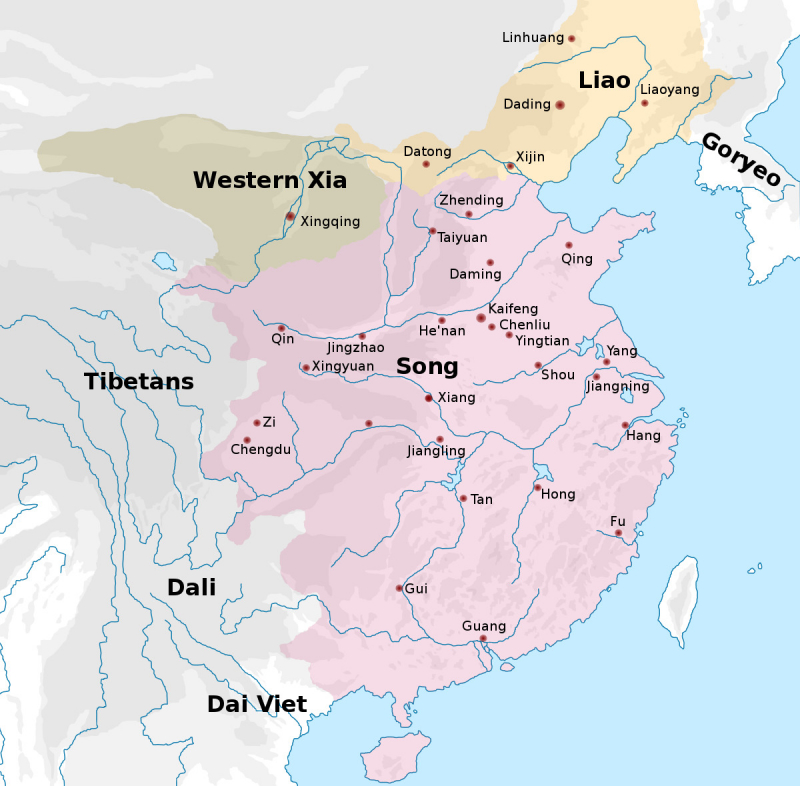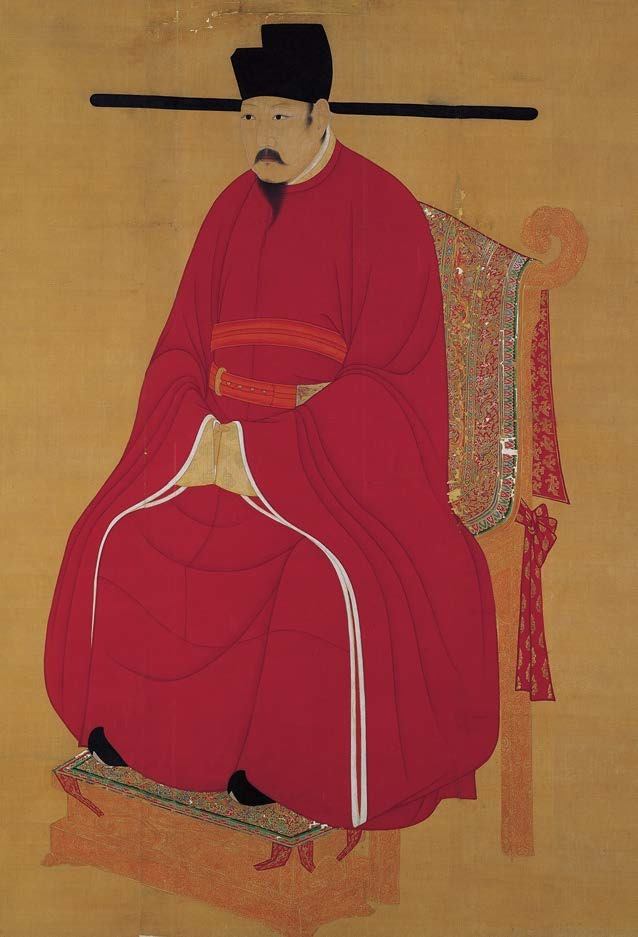The Song Dynasty

China's Song Dynasty, which started in 960 and ended in 1279, ruled the country for a thousand years. After usurping Later Zhou's throne, Song Dynasty Emperor Taizu established the dynasty. The Ten Kingdoms and Five Dynasties eras were both put to an end by the Song Dynasty's conquest of the remaining Ten Kingdoms.
The Northern Song and the Southern Song were the two divisions of the Song dynasty. The Northern Song Dynasty ruled much of what is now Eastern China, and its capital was located north of Bianjing (now Kaifeng). The term "Southern Song" describes the time following the Jin-Song Wars, when the Song Dynasty lost control of its northern half to the Jurchen dynasty. The Song court relocated south of the Yangtze at that time, establishing Hangzhou as its capital. The Song Dynasty lost control of the traditional heartlands of China along the Yellow River, but the Southern Song Empire continued to have a sizable population and plenty of agricultural lands to support a robust economy. The Mongols took over northern China in 1234 after the Jin dynasty was overthrown, and they kept a tense alliance with the Southern Song. The fourth Great Khan of the Mongol Empire, Möngke Khan, passed away in 1259 when he was besieging Diaoyucheng, a mountain castle near Chongqing. In 1271, his younger brother Kublai Khan declared himself to be the next Great Khan and founded the Yuan dynasty. After two decades of intermittent conflict, Kublai Khan's armies overthrew the Song Dynasty in 1279 and united China under the Yuan dynasty after defeating the Southern Song at the Battle of Yamen.
In terms of economy, the Song Dynasty was one of the most advanced and successful economies in medieval times. When financial gains from international and domestic commerce along the Grand Canal and the Yangtze River were guaranteed, Song Chinese put their money in joint stock enterprises and numerous sailing ships. The state had to deal with guilds created by artisans and merchants when it came to taxation, requisitioning products, and fixing minimum salaries and pricing for items.
Private business owners who operate their own smelters and government-controlled smelting plants both compete in the iron sector. The Song economy was strong enough to support yearly iron product production of about 100 million kilos. The majority of this iron was created with the intention of being utilized by the military to create weapons and other equipment, but part of it was also used to create many of the iron goods required to satisfy market demands. The domestic market is expanding. New canals were built, which improved the flow of iron goods from the industrial hubs to the main market in the capital, enhancing iron commerce in China.
The first government in history to issue paper money was the economy's most significant development during the Song era. There were over six billion coins produced yearly in 1085. The Song court created many government-run facilities to produce paper money in the towns of Huizhou, Chengdu, Hangzhou, and Anqi. The number of people employed in banknote manufacturing is enormous. In 1175, it was noted that the Hangzhou factory employed more than a thousand employees daily.
The Song Dynasty saw great advancements in philosophy, mathematics, science, technology, and engineering. This was also the first Chinese government to set up a permanent fleet. As well as the first known chemical formulation of gunpowder, this dynasty was responsible for the development of explosive weaponry including blazing arrows, explosives, and fire lances. It also witnessed the first use of a compass to determine north, the first description of a pound lock in writing, and the development of the astronomical clock.
To conclude, the Song Dynasty:
- existed from 960 to 1279 and ruled the country for a thousand years under Emperor Taizu.
- divided into two periods: the Northern Song and the Southern Song.
- economically, it achieved outstanding achievements such as international trade.
- regarding science and technology, iron production, issuance of banknotes, and gunpowder production were also first recorded.











